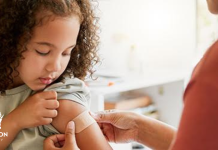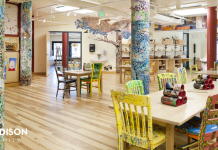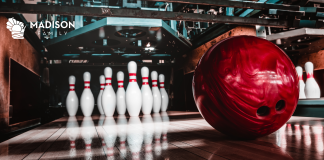In a sense, I am VERY body positive… but my BODY is the one saying no.
I would love nothing more than to work hard and be reliable. My body, however, is not up for the task.
I’m kind of bitter about it…. and am failing at body positivity.
Positively With You
The body positivity movement has empowered and given a voice to all shapes and sizes of human beings. “If you’ve got it, flaunt it. And if you don’t got it? Flaunt it.” Here, here! I’m right there with you, Mindy Kaling. #JustWearTheSuit. Feel good, forget the haters, and go about your business.
This sort of advocacy may be relatively new for the general public but it’s a way of life in the disability community. People born with non-standard bodies are the OG’s of the born this way and proud mentality. They’ve been shining their lights long before it was cool (or socially accepted).
Positivity is a legitimate platform today and it’s long had a wheelchair accessible ramp. However, body positivity may not be accessible to all. No matter how you roll, you may be left feeling the pros and cons of this well-intentioned movement. The disability community, in particular, feels your struggle.
Representation Matters
[Enter stage right] all those swimsuit campaigns. A dozen or so strong, smiling women, shoulder to shoulder, in neutral, often matching, bikinis. Dove’s Real Beauty campaign started making waves in 2004, but with mixed reviews, and it doesn’t look like much has improved. Wait… have you ever seen a truly body inclusive version? (I finally found one here, but my point still stands.)
As this piece so perfectly sums up, body-positive posts lack representation. Why aren’t there any mobility aids in those line-ups? Cannulas? Braces? Missing or prosthetic limbs? Compression garments?
The cold truth: as a society, we’re not ready to embrace disabled bodies as beautiful. Disability is still taboo and scary. Those who embrace their non-conforming bodies are all too often relegated to “inspirational” status, instead of being just another mainstream body positivity message.
Maybe there is inclusive progress being made, seen in online shorts like “Shake My Beauty”… but watch with a grain of salt. There’s a slippery slope between Influencer and Inspiration.
Be happy for their journey of self-love, but be careful not to suddenly make able-bodied struggles (including body image issues) seem manageable. It separates your humanity and your world from theirs, when in reality we’re all in this together. Feed off of their positivity and chose to join them. Make it inclusive body positivity.
Negative Nancy
Hold up. Can I be honest?
Positivity is hard. It’s an ideal to aspire to and is what keeps motivational speakers in business. It comes more naturally to some people and we do need it in the world…
But frankly, it’s unfair that we’ve come to expect it out of everyone. That goes double for the disability community; they know firsthand how hard it is to embrace a body that constantly fights with them. Yet, their “bodies are always being stared at, interpreted, and intruded upon,” arguably more than any other group. Being in the spotlight all the time compounds the pressure to be enough (ask any celebrity) on top of already feeling crummy.
Being Enough
Am I just not trying hard enough? I frequently get sucked into the old “pull yourself up by your bootstraps” mindset. That starts an unhealthy cycle of setting lofty goals, overtaxing myself, and crashing into symptom flares.
If a friend treated me like my body does, they’d have been cut off years ago. Yet, somehow, we’re still attached at the hip. How can you support and celebrate something that has prevented you from participating in life? This sounds like the recipe for a toxic relationship. (Yes, there is such a thing as toxic positivity.)
No one (disabled or able-bodied) should feel less than for “failing” to achieve the self-love standards.
The Alternative
Maybe we don’t have to subscribe to the positive/negative polarity. Maybe we can create a neutral zone. We care for our bodies in order to keep them going as best we can, without fixating on them.
I’m calling a truce. I’ve been let down so many times but I’m striving for body neutrality.
I do my best. My body does… things… and I gently redirect the course and rewrite the narrative, as I am able to. No pressure. No strings or conditions attached. No distorted self-images.
Take the good with the bad and balance them out. You live in the body you have. Take care of it when needed and go do good in the world.
I’m full of gratitude for making it this far and maybe someday I’ll be in the position to embrace body positivity. But for now, I’m body non-conforming and body neutral, and I’m ok with that.

















